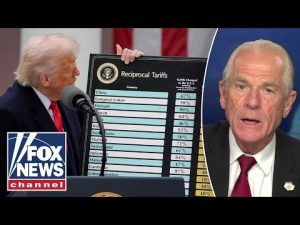In the latest legal sparring match over the deportation policies of the Trump administration, Judge James Boasberg has extended his hold on deportations under the Alien Enemies Act for two more weeks. This unusual old law is being used to send suspected Venezuelan gang members to El Salvador. It’s doubtful anyone in 1798 could have guessed their legislative work would be dragged into modern courtroom drama. Perhaps they’d be rolling in their powdered wigs if they saw the current clash between Presidential power and judicial intervention.
House Republicans are now gearing up to rein in federal judges’ power, which seems to be the political flavor of the month. Some lawmakers are treating this as one would a wild western melodrama, where district court judges are the outlaws needing to be lassoed back to their local jurisdiction corral. It’s humorously reminiscent of a scene where the protagonist dramatically exclaims, “This town ain’t big enough for the both of us.” But jokes aside, the stakes in this political affair are significantly high.
Artful Congressman Darrell Issa of California stepped into the spotlight, ready to put the judicial system on trial itself. He’s pointing out the antics of, as he calls them, “activist judges” who, some believe, are happily using their gavels to unfairly target the executive branch. These judicial cowboys, it seems, have been overstepping their district boundaries—trying to slap national injunctions across the face of the land without proper permissions. House Republicans are echoing sentiments reminiscent of historical congressional spats, aiming to tackle these legal roadblocks, and will soon conduct a hearing to wrestle these issues into submission.
The Supreme Court is preparing to become the final boxing ring for the Alien Enemies Act case. With the current justices on board, some might speculate that the Trump administration’s interpretation of the law could receive a more sympathetic nod. After all, the high court tends to welcome well-crafted written dissents from the past like a fine vintage wine. If ever there was a tenure for judicial resolution, now might be that golden hour, revitalizing old arguments with a fresh high court twist.
In a nod to historical equilibriums, some argue that avoiding another “declaration of war” scenario is a pursuit worth considering. Of course, whether all these aspirations play out seamlessly remains a mystery. But for now, the potent mix of historical legislation and modern political drama promises to keep everyone guessing, perhaps reaching climactic decisions that only time—alongside a few spirited congressional hearings—will reveal.







